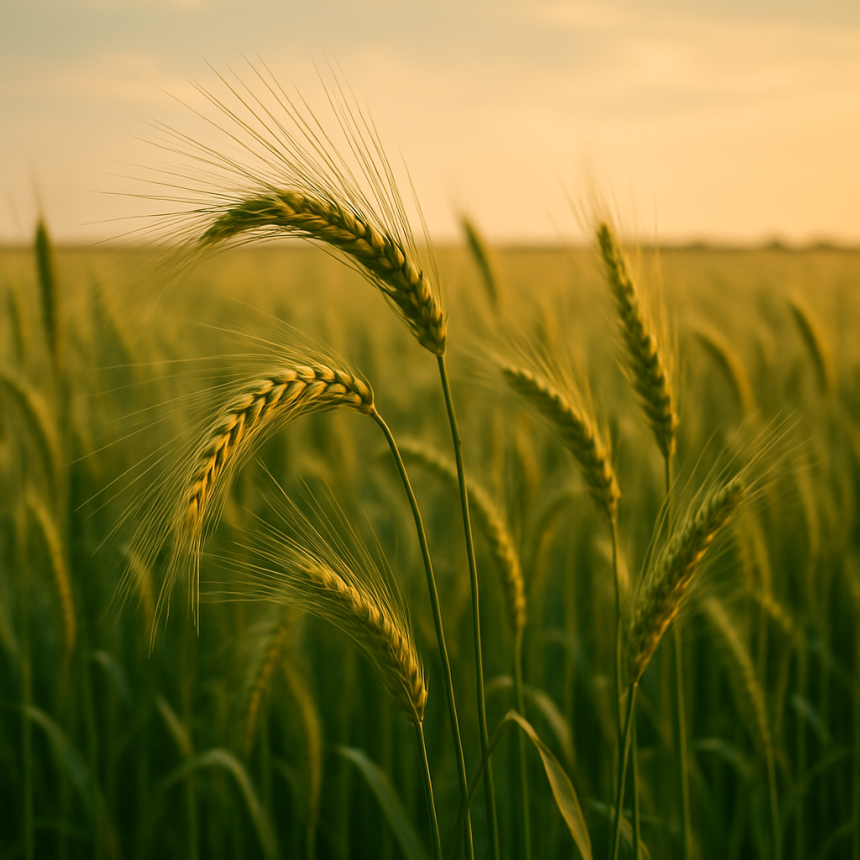Emor
We are standing in the midst of the unique period of Sefiras Ha’omer. It is called this name, based on the mitzvah of the korban omer that is taught in our Parashah. Each year, on the second day of Pesach, Klal Yisrael were commanded to bring an offering of barley to the Beis Hamikdash. Only afterwards they were permitted to eat from the new crop of grain. What is the reason behind this mitzvah?
The Sefer HaChinuch (302) explains that it is to contemplate the tremendous kindness which Hashem does for us each year. After all, year after year, Hashem graciously provides us with such delicious new produce. Therefore, we bring a portion of the new crop as an offering, to recall the great kindness of Hashem for giving us this produce, before we benefit. The same idea applies to reciting berachos. Before we enjoy Hashem’s delicious food, we need to reflect on His great kindness for giving us this gift and to express our appreciation. Only then do we eat the food.
However, we are still left with a big question. Why is the omer specifically brought on the second day of Pesach? Why could it not be offered before or after?
Rav Chaim Freedlander brings a beautiful explanation. We know that the purpose of the period of the omer is to prepare ourselves to receive the Torah. The Ramban (end of Parasha Bo) explains that the foundation of the Torah is the awareness that really everything is a miracle and that there is no such things as nature. Sometimes Hashem chooses to perform miracles which are revealed, such as the ten plagues and krias yam suf, transcending “nature.” However, really what we call “nature” is no less than miraculous. Appreciating the reveled miracles is supposed to lead us to the awareness that really “nature” itself is no less than miraculous. Hashem changed the laws of what we call “nature” yet He created “nature” in the first place, and orchestrates each detail of the world.
The first day of Pesach is designated to focus on the open miracles which Hashem performed for us. How in His abundant mercy, He brought us out of Egypt, performed ten wonderous plagues and miraculously split the sea. However, when we focus on the open miracles, we must realize that really it does not stop there and Hashem performs countless hidden miracles on a constant basis.
One example of a hidden miracle which we experience so often, is food production. Take how such a tiny seed has the potential to produce tons of fruits. The seed first decays until it miraculously begins to sprout, providing us with an abundance of produce. We refer to phenomena like the resurrection of the dead as a miracle. Asks Rav Freedlander, is the production of our produce any less of a miracle? The seed which almost completely decayed miraculously goes on to produce delicious crops. How rain is formed and then helps our produce grow, is just as miraculous! For this reason, Chazal instituted that we praise Hashem for rain specifically in the blessing of the shemoneh esrei which deals with the resurrection of the dead.
This is why we are commanded to bring the korban omer on the second day of Pesach. After focusing on the open miracles of Yetzias Mitzrayim, we should realize that everything is a miracle, including phenomena such as the production of our food. We therefore bring a korban from the first yield of the crop, displaying our gratitude for the fact we are surrounded by miracles. This is the perfect way to prepare for receiving the Torah, since this awareness is its foundation. (Based on Sifsei Chayim Moadim 3 p. 29-36)
Rabbi Avigdor Miller was absolutely mesmerized by the incredible phenomenon of seeds. “They are more amazing than finding a free coupon inside an apple for another apple”, he would say, “since each seed is ingrained with so much information that it could produce an entire apple tree!” He had a collection of all different types of seeds in his study, in order to contemplate these incredible objects. There was a time when he even carried seeds in his pocket, to be constantly inspired by these wonderous items. One time he excitedly called over his grandchildren, saying, “look, I have a special gift for you”. To their surprise he didn’t pull out a chocolate bar or a toy, but rather a bag of seeds and a microscope. “I benefited so much from these” he said “and I have no room to keep them, so they are yours as a gift. To think that each seed is a library and a factory! It has all the information to produce a fruit bearing tree, all in this tiny seed” he exclaimed passionately. (Rabbi Avigdor Miller, His Life and His Revolution p.270)
=










